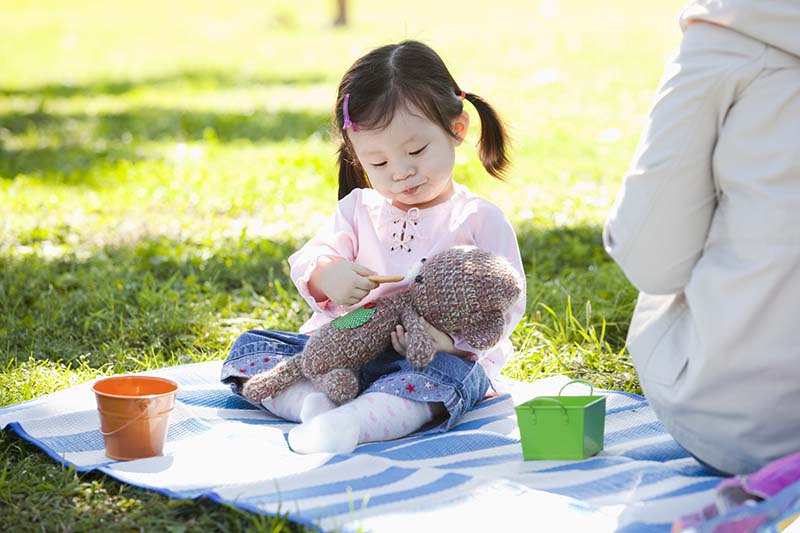Families For Life | Imaginary Friends

Imaginary friends grow out of healthy, active imaginations. They give children a great way to express their feelings and a playmate to practise their social skills with. Two out of three children have imaginary friends, so it’s likely your child will bring one home at some stage.
What are imaginary friends?
Imaginary friends are pretend friends that your child makes up in his imagination.
Imaginary friends come in all shapes and sizes. They can be based on someone your child already knows, a storybook character or even a soft toy. Or they can come purely from your child’s imagination.
These friends might always be there, or they might come and go. They may exist only in certain spots like the play area or at the kitchen table. They may appear and disappear for no apparent reason.
When do imaginary friends appear and how long do they last?
Children as young as 2½ years can have an imaginary friend.
Children usually stop playing with make-believe friends – whether they have one, several or even a whole family of them – when they’re ready to move on. Imaginary friends are most likely to be around for several months, but they could be a feature of your child’s life for up to three years.
Why do children have imaginary friends?
Your child’s imaginary friend could be someone who:
listens to and supports your child
plays with your child
can do things that your child can’t do
is special and belongs only to your child
doesn’t judge or find fault with your child
Your child is in charge of what the imaginary friend says, what the friend does and who this special friend can ‘play’ with. This could be part of the friend’s appeal too.
Imaginary friends allow children to explore a make-believe world that they create all by themselves. In fact, children with make-believe friends might be more imaginative and more likely to enjoy fantasy play and magical stories.
The way children play with or talk about their friends can tell you a lot about how they’re feeling. Make-believe friends give you insight into your child’s inner world, and his likes, dislikes and tastes.
Children with imaginary friends can be more social and less shy than other children, and they might show more empathy in their play with other children. They might also be more likely to grow up into adults who are more tuned in to the needs of others.
Handling issues with imaginary friends
Here are some ideas for times when your child’s imaginary friend has become hard to handle.
Doing things for imaginary friends
You might find that you’re being asked to hold open doors, fix a snack or make up a bed for your child’s imaginary friend. Rather than doing it yourself, encourage your child to hold the door open, set a place for the friend at dinner or make up the bed. This way you’re accepting the imaginary friend but also taking the opportunity to develop your child’s skills.
Talking through imaginary friends
Some children insist on consulting with their imaginary friends all the time – for example, ‘I have to ask Sammy first’. They might also ask you to speak to their friend, rather than directly to them. If this is getting frustrating, try saying to your child, ‘I want to hear what you think – not what Sammy thinks’.
Blaming imaginary friends
Sometimes children will do or say something they shouldn’t have and blame their imaginary friends. You can handle this by clearly telling your child that the imaginary friend could not have done this. Then follow up with an appropriate consequence, like making your child clean up the mess.
When there might be other issues
Very rarely, imaginary friends can be a symptom of other issues. If you’re worried about your child’s imaginary friend – for example, if your child has suffered a traumatic event or the imaginary friend is being malicious or nasty – consult your General Practitioner (GP), paeditrician or another health professional.
© raisingchildren.net.au, translated and adapted with permission
Explore more